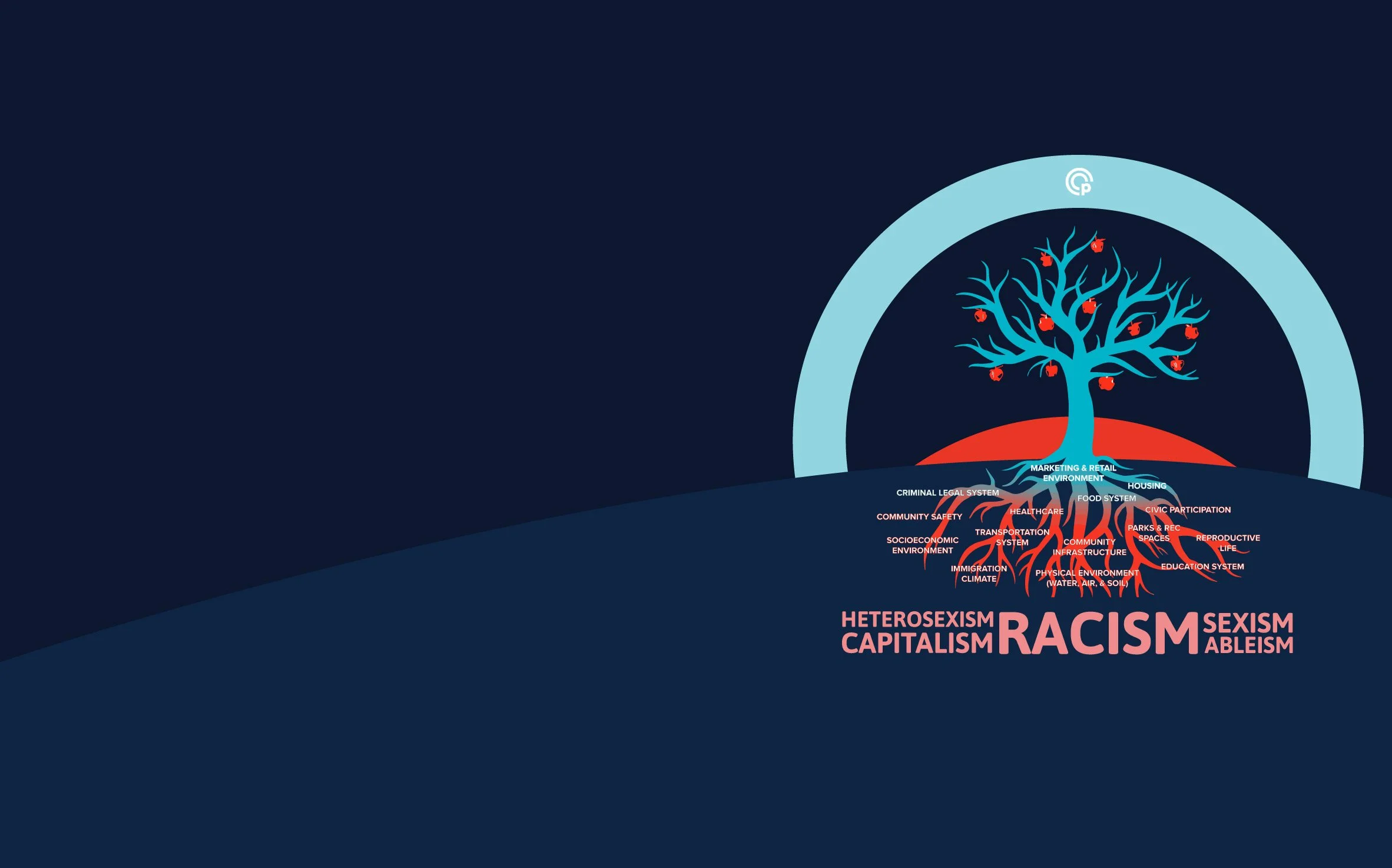SDOH OVERVIEW
Conversations around health often center around individual choices and access to healthcare services. However, these limited frames fail to address the root causes that shape health at a community level long before healthcare even enters the equation.
Reframing what we see as the determining factors of health is critical for achieving health equity. An individual’s health and wellness are largely determined by the environment and social conditions they live in. A number of studies highlight the impact of place on life expectancy. We often hear that one’s zip code is more important than their genetic code when it comes to a long healthy life.
It is important to understand that the need for healthcare access is the result of social and environmental conditions entire communities are both exposed to and deprived of. Research points to various factors that have direct associations to an individual’s health and life expectancy, which are referred to as the social determinants of health (SDOH). These are the social and environmental conditions that we experience on a daily basis; this includes housing, recreational space, community infrastructure, education, and much more. We recognize these conditions and their effects are often interconnected.
STRUCTURAL DETERMINANTS
The levels of inequity within these social determinants are connected to deeper and more widespread structural systems of historical oppression and discrimination; this includes systems such as racism, sexism, ableism, capitalism, white supremacy, heterosexism, xenophobia, and transphobia. The institutionalized policies and theories created by these systems shape the social determinants of health in ways that place Black, Indigenous, people of color, LGBTQ individuals, undocumented people, working class families, people with disabilities, and other marginalized communities at greater risk for poor health outcomes.
Despite these social determinants and the overarching structures that manifest inequity within them, community resilience continues to elevate successful and innovative strategies to improve health for everyone. Communities across the U.S. continue to organize in order to provide solutions for the social determinants that shape the conditions of their community, which in turn will better healthcare access and reduce people’s need to even seek healthcare. Communities are also finding new ways to cultivate systems of healing and care necessary to address traumas caused by long histories of oppression and violence.
BUILDING POWER FOR HEALTH, JUSTICE, & RACIAL EQUITY
The practice of traditional public health and allied professions has made significant and necessary progress in improving population health, and yet is still not benefiting all communities equitably. As the traditional practice of public health continues to evolve, it remains largely focused on approaches centering research, surveillance, evaluation, and behavior-change interventions, often perpetuating inequities. Building community power, including basebuilding and community organizing, however, remain largely untapped and represent an area of great opportunity for advancing racial and health equity. The Praxis Project’s work with community power building partners consistently shows us that building power through supporting community organizing is crucial to improving health justice and racial equity across issues, and that there are opportunities to strengthen collaboration with traditional public health and allied partners.
Many of the structures and social systems that community power building organizations seek to transform (housing, education, healthcare, food access, etc.) are also responsible for persistent trauma that communities must contend with and respond to through healing and culture. Organizers work across generations, language and culture: they grapple with unique needs, barriers and strengths of their individual communities. With this healing- and culture-centered approach, basebuilding community organizer-led work is at the forefront of transforming health inequity through the pursuit of health justice and racial equity.
The Social Determinants of Health Equity Framework
The Praxis Project uses a social determinants of health (SDOH) framework to guide our work. Many traditional SDOH frameworks lack the explicit naming of systems of oppression that cause disparities in health determinants. In an effort to incorporate these systems of oppression and to highlight the root causes of these determinants from a justice and community power perspective, The Praxis Project created this visual representation. This entire framework—from the root causes, to the social determinants of health, to the subsequent health outcomes—is Praxis’ Social Determinants of Health Equity framework. Click on the panels to learn more.
Praxis' visual framework was inspired by Levels of Racism: A Theoretic Framework and a Gardener’s Tale by Camara Phyllis Jones, MD, MPH, PhD. Learn more about the framework here: https://ajph.aphapublications.org/doi/pdf/10.2105/AJPH.90.8.1212. Watch Camara Jones tell a Gardner's Tale.

EXPLORE THE FACTORS
Learn more about the Social Determinants of Health by clicking on the factors below. Each page defines the determining factor, explains its impact on health outcomes, includes relevant disparities and statistics, and provides opportunities to access resources and learn more about organizations working towards health, justice, and racial equity in each area.
We invite your feedback, suggestions, and additional resources in the comment section of each of the factors below.
























